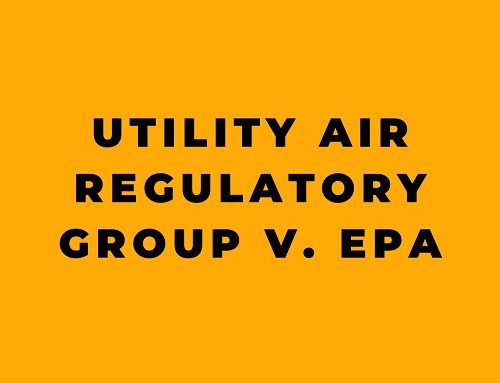Introduction: The Texas Real Estate Commission
The Texas Real Estate Commission (TREC) is a central pillar in the real estate industry within the Lone Star State. Nestled in the heart of Austin, TREC’s mission is to safeguard the real estate market, ensuring its operations are carried out with the utmost integrity and professionalism.
TREC’s role is multifaceted, encompassing the licensing and regulation of real estate agents, brokers, and inspectors, along with the provision of educational resources and consumer protection services. These functions make TREC an indispensable entity in preserving the integrity and professional standards of the Texas real estate market.
TREC’s foundation is deeply interwoven with the legislative fabric of Texas. During the 86th Legislative Session, TREC played an instrumental role in monitoring and influencing various bills pertinent to the real estate industry. These bills spanned a diverse range, including establishing limitations periods for lawsuits against real estate appraisers and appraisal firms to the continuation and functions of TREC and the Texas Appraiser Licensing and Certification Board (TALCB).
TREC’s unwavering commitment to upholding safety standards and consumer protection is evident in its legislative involvement. For instance, the recently passed Senate Bill 1588 in Texas mandates homeowner’s associations (HOAs) to file management certificates with their respective county and TREC. This measure fosters more transparent procedures and bolsters protections for homeowners.
The Multifaceted Roles and Responsibilities of TREC
Since its establishment in 1949, TREC has been a cornerstone in the Texas real estate industry. Its responsibilities are vast and varied, encompassing licensing, education, and regulation of the real estate realm. Beyond these mainstays, TREC also plays an active role in shaping the trajectory of the state’s real estate practices, ensuring a balance between professionalism and consumer safety.
Licensing
TREC is the gatekeeper for licensing real estate brokers, agents, and other industry professionals. The licensing process is robust and meticulous, designed to ensure only the most qualified individuals operate in the real estate market. TREC sets the bar for qualifications, approves real estate courses, and administers licensing exams. Furthermore, the rigorous licensing process underscores TREC’s commitment to uphold standards, ensuring that Texas remains at the forefront of real estate excellence. Through its rigorous checks and balances, the commission guarantees that the state’s real estate market remains resilient, dynamic, and trustworthy.
Education
TREC is also a beacon of education for real estate professionals. The commission mandates licensees to complete 16 hours of state-approved continuing education biennially, including a compulsory TREC Core Course. Brokers face additional educational requirements, including 120 post-broker hours and 16 hours of continuing education every two years. Additionally, the dedication to continuous learning exemplified by TREC ensures that professionals are always up-to-date with the latest industry trends, technologies, and best practices. This commitment to education ensures that Texas’ real estate professionals remain among the best-prepared in the country.
Regulation
TREC’s regulatory role is pivotal in preserving the integrity and professionalism of the Texas real estate industry. The commission ensures compliance with relevant laws and regulations, handles consumer complaints, and enforces rules and laws through its Enforcement Division. In an ever-evolving industry landscape, TREC stands as a vigilant watchdog, emphasizing transparency and ethical practices. Their stringent regulations serve as a deterrent for malpractices, positioning Texas as a benchmark for other states in real estate governance.
Safety Standards
TREC isn’t just about licensing, education, and regulation. It also sets safety standards for real estate practices. These standards ensure a secure environment for both agents and clients. TREC’s role in setting and enforcing these standards helps protect consumers and promote fair and ethical practices in the real estate market. Moreover, the emphasis on safety reiterates TREC’s commitment to public welfare. By setting safety benchmarks, TREC ensures that real estate transactions not only meet commercial expectations but also uphold the safety and security of all parties involved.
TREC-Related Course Provider Suggestions
TREC (Texas Real Estate Commission) approves qualifying education providers to offer real estate and inspector courses. Here are some TREC-approved course providers for real estate continuing education:
- The CE Shop: Offers online real estate continuing education courses and has a high customer satisfaction rating
- McKissock Learning: Offers a constantly growing library of continuing education options and is known for its class variety, instructor accessibility, and platform features.
- Kaplan Real Estate Education: Offers video on demand for continuing education courses and is available in multiple states, including Texas
- 4MeCE: A TREC-approved real estate continuing education provider that offers Legal Updates I & II, Broker Responsibility, and many other courses
- Champions School of Real Estate: Offers a variety of continuing education courses for Texas real estate agents and brokers.
Please note that courses are only accepted for credit when the provider and course are currently TREC-approved.
You can also use the TREC Approved Course Search tool to find more approved qualifying or continuing education courses for real estate or inspector license holders
Conclusion
In summary, TREC plays a critical role in upholding the integrity and professionalism of the Texas real estate industry. Through its licensing, education, regulatory functions, and safety standards, TREC ensures that the real estate market operates in a manner that is fair, ethical, and beneficial to all parties involved. Its unwavering commitment to high standards of practice, enforcing laws and regulations, and ensuring consumer protection sets a high bar for the rest of the industry.
Image Reference:










